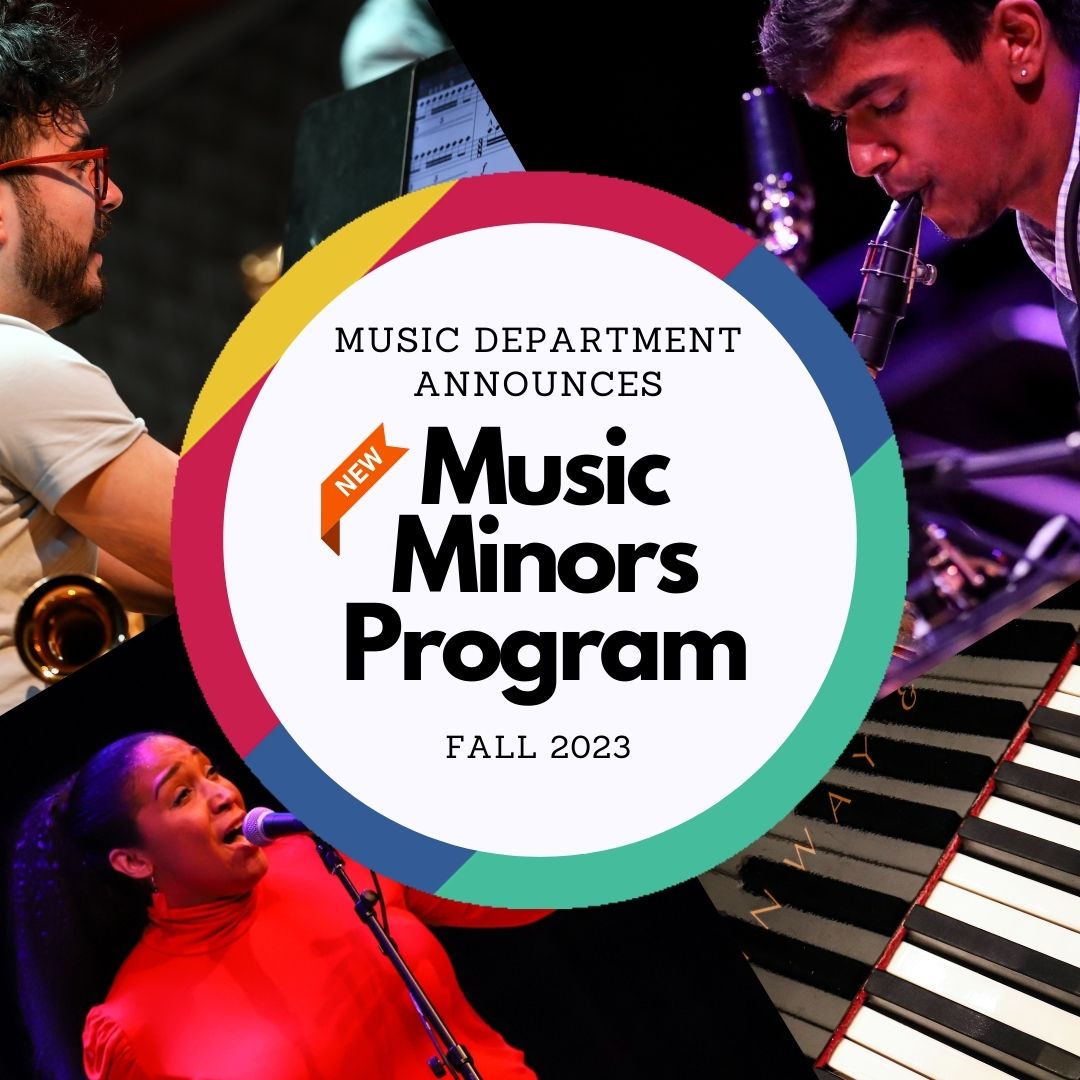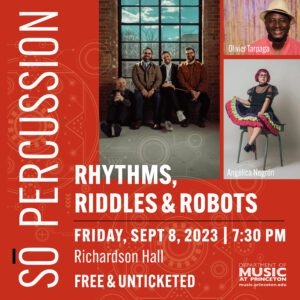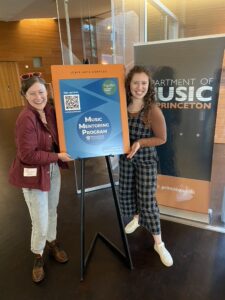The Department of Music is pleased to announce the establishment of two Music Minors: a general Minor in Music and a Minor in Music Performance. Together, these new offerings will contribute to the Music Department’s continued mission of offering a comprehensive array of musical study opportunities to students from all departments at Princeton.
Beginning in Fall 2023, Class of 2025 students from all departments are invited to forge an exciting path inspired by their imaginations, bringing the topics and themes they are studying in their majors to bear on our music practices and, in turn, offering new lenses through which they can metabolize their studies in other areas.
The Minor in Music (MUS Minor), closely modeled on the existing music major, offers a broad introduction to making, performing, studying, and writing about music. The Minor in Music Performance (MPP Minor), evolving out of the Certificate in Music Performance, provides a rigorous opportunity for students to study performance techniques in the context of a liberal arts education.
Students pursuing either of these minors build individualized programs of study from a wide breadth of music coursework comprising MUS 105 (the introductory music theory course), one Materials & Making course (encompassing composition, improvisation, theory, analysis, and electronic music), and one Culture & Criticism course (encompassing historical and formalist analysis, cognitive science, and ethnography), along with at least two additional MUS courses for those pursuing the MUS Minor and two MPP courses for those pursuing the MPP Minor. Music Performance students (admitted to the minor by audition only) also build performance skills through regular participation in faculty-led ensembles, studio lessons, and the presentation of a final senior recital.
Among Music Department faculty and staff, it is our shared belief that interdisciplinary approaches to study enrich our world by broadening perspectives and promoting creativity. The development of the MUS and MPP minors was inspired in large part by the myriad pathways students have pursued in the Department of Music over the years.
“The Department of Music has a long history of collaboration across disciplines at Princeton, whether that be with Computer Sciences and the School of Engineering and Applied Science more broadly, with the enormous range of fields in the Lewis Center, with Psychology and Neuroscience, and with other humanities departments and programs like Slavic Studies, Italian Studies, or the Center for the Digital Humanities and others. This is both a consequence of the field of music generally—an intrinsically rich subject that lends itself to engagement from many perspectives—and the commitment we have as a department to view music omnivorously and with openness.” — Daniel Trueman, Department Chair; Professor of Music
Within the past ten years alone, music major senior theses have embodied this core value: Lawrence Chiang (‘21), under the guidance of faculty member Elizabeth Margulis, performed critical research at the intersection of music and medicine by examining the utility of music in the preoperative, intraoperative, and postoperative stages of surgery; Casey Kolb (‘15), advised by Dmitri Tymoczko, bridged his interests in interactive art and web development by building a musical web experience centered around curiosity and fun; and Heather O’Donovan (‘16), advised by Wendy Heller, examined the possibilities and complexities of cross-cultural artistic translation by adapting a French opera into a singable English translation. Among Music Certificate students, too, performance projects have been varied and exciting, encompassing a rich array of musical traditions beyond the borders of the western cultural idiom and touching upon themes inspired by cross-campus coursework.
The Music Department is proud to serve as a hub for innovation and creativity, bridging disciplinary divides and fostering new avenues for insight and inspiration.
“The Minor in Music Performance will surely continue to be popular, as the certificate it is based on has been for decades, and I anticipate the new Minor in Music will be even more so. Both draw from students majoring in all subjects across campus, and I expect we’ll see more senior theses in other departments where music is a central, informed focus. I also wouldn’t be surprised if some of those intending to minor in music discover they actually want to major in music, or perhaps pursue music after they graduate! I was a physics major myself as an undergraduate, but my studies in music then were formative, and set the course for what I have done since.”
—Daniel Trueman, Department Chair; Professor of Music
To continue to foster a diversity of experiences, both minors are intentionally open-ended, creating space for students to engage with their own individual musical interests, whether as distinct from or as complementary to their primary course of study.
An Anthropology major curious about the field of ethnomusicology might enroll in the general MUS Minor, taking courses such as MUS 262: Jazz History: Many Sounds, Many Voices and supplementing this with coursework within the Anthropology department on ethnographic methodology in order to better understand how ethnomusicologists structure, perform, and analyze their research. A student who plans to pursue an advanced degree in medicine might build an entirely distinct MUS Minor experience around courses including MUS 204: Musical Instruments, Sound, Perception, and Creativity or MUS 248: Music Cognition, for example, supplementing coursework with research opportunities through the Music Department’s Music Cognition Lab.
Jazz musicians, who formerly would have enrolled in the Certificate in Music Performance or the Certificate in Jazz Studies, may now elect to pursue either the general MUS Minor or the MPP Minor, depending on individual goals and interests. A MUS Minor student studying jazz may take MUS 261: Introduction to Jazz Arranging, Composition and Harmony, MUS 262, or MUS 340: Advanced Concepts in Jazz Improvisation: Creating Fresh Vocabulary, while another student pursuing the MPP Minor might supplement such coursework with other performance-based courses, like MPP 251 or 252, take studio lessons, participate in faculty-led ensembles, and perform a senior recital. Other students who might formerly have enrolled in the Certificate in Music Performance, too, may now elect to pursue a MUS Minor instead within their chosen field: composers and students interested in electronic music might pursue such coursework as MUS 205: Species Counterpoint, MUS 206: Tonal Syntax, MUS 310: Advanced Workshop in Musical Composition, or MUS 314: Computer and Electronic Music through Programming, Performance, and Composition within the context of the general MUS Minor, while optionally maintaining membership in PUCC and/or PLOrk.
“Music is a passion for so many Princeton students. For those who want to challenge themselves as performers and build a foundation that will be there for them the rest of their lives, regardless of their career, the Minor in Music Performance will continue to be a rigorous and motivating program. And now, with the new Minor in Music, those who have other interests in music will have the opportunity to pursue them in a formalized, guided way; this might inform their independent work in their major, perhaps becoming part of their profession after Princeton, or it might just help them cultivate their passion for music in a deeper way, giving them a different kind of foundation to build on for years to come.”
— Daniel Trueman, Department Chair; Professor of Music
In Other News
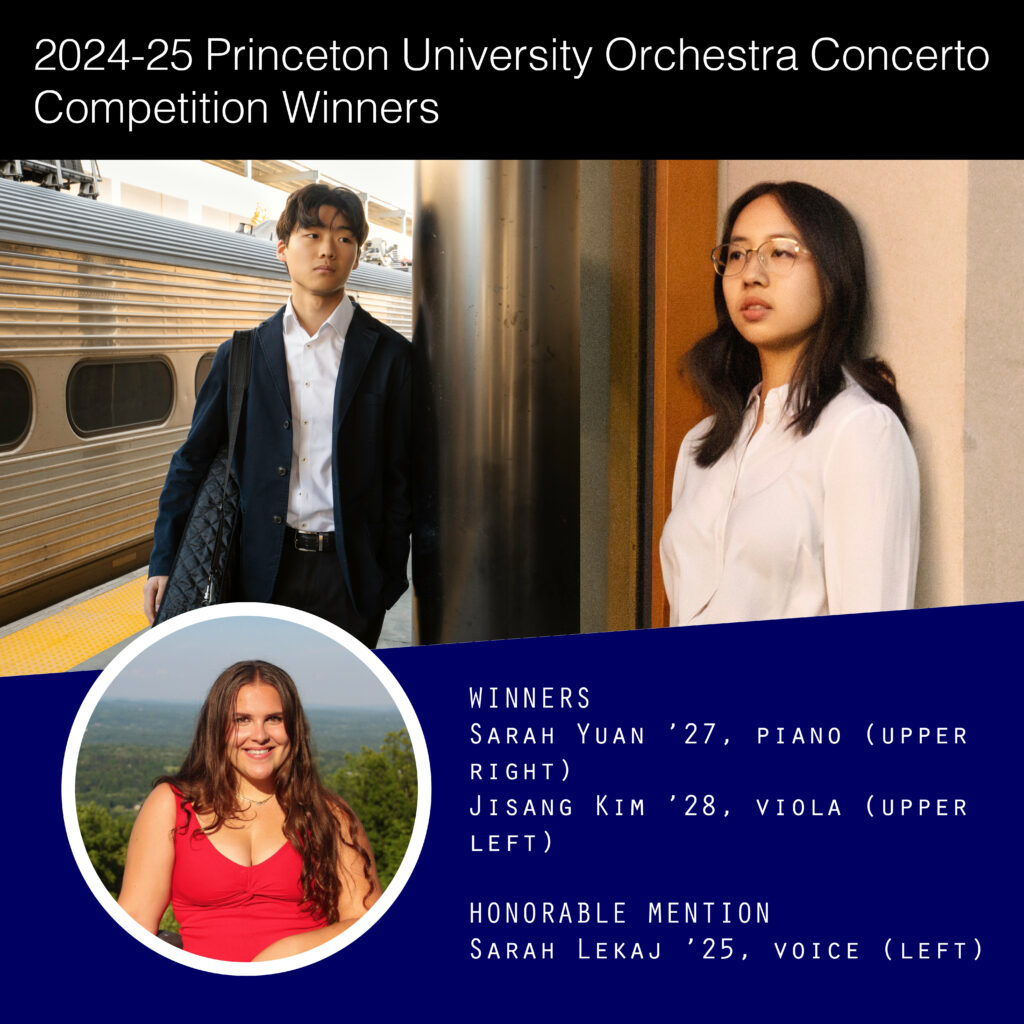
Announcing the 2024-2025 Concerto Competition Winners
Jan 16, 2025
The Music Department is excited to announce the winners of the 2024-25 Princeton University Orchestra’s annual Concerto Competition: Sarah Yuan and Jisang Kymm. Both will have the honor of performing …

Announcing the Launch of Princeton in Leipzig
Jan 7, 2025
Enrollment in “Princeton in Leipzig” has been extended to March 2, 2025! The Princeton Music Department is excited to announce the launch of Princeton in Leipzig, a summer study abroad …
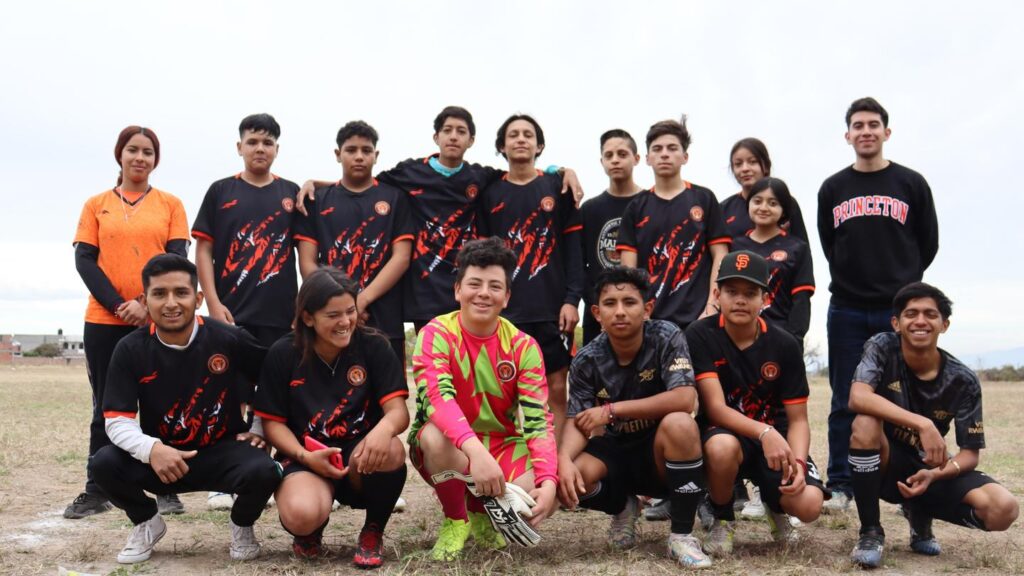
It takes a village: Projects for Peace winner Carlos Cortez ’24 and the people of Zináparo bring music and soccer to their youth
Jan 23, 2024
It takes a village: Projects for Peace winner Carlos Cortez ’24 and the people of Zináparo bring music and soccer to their youth

